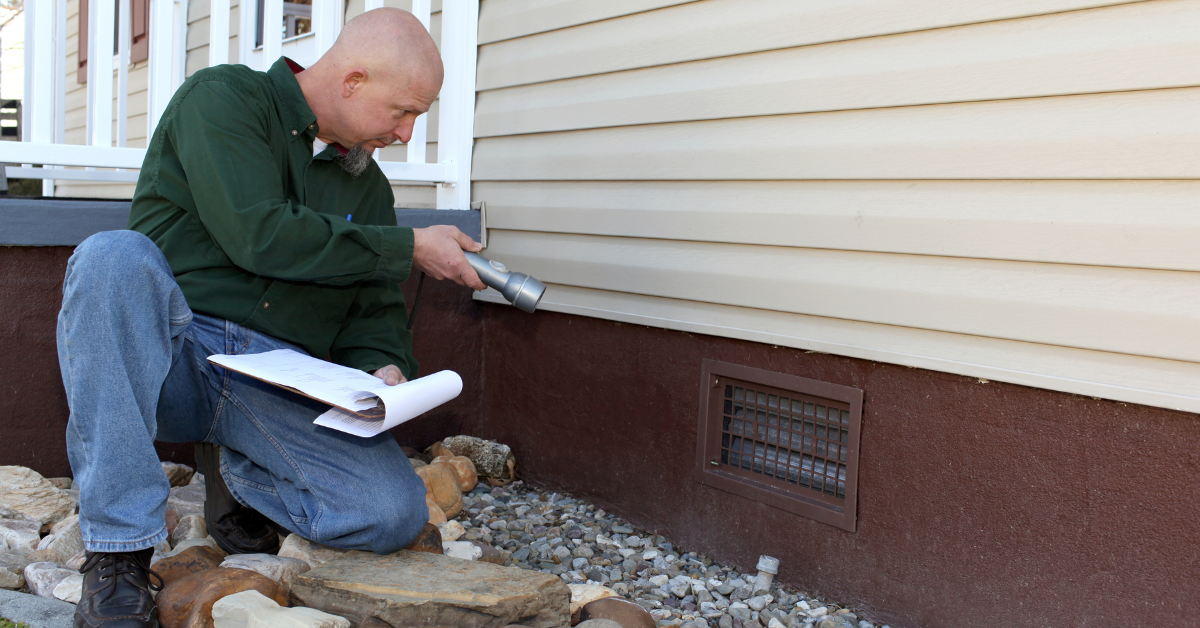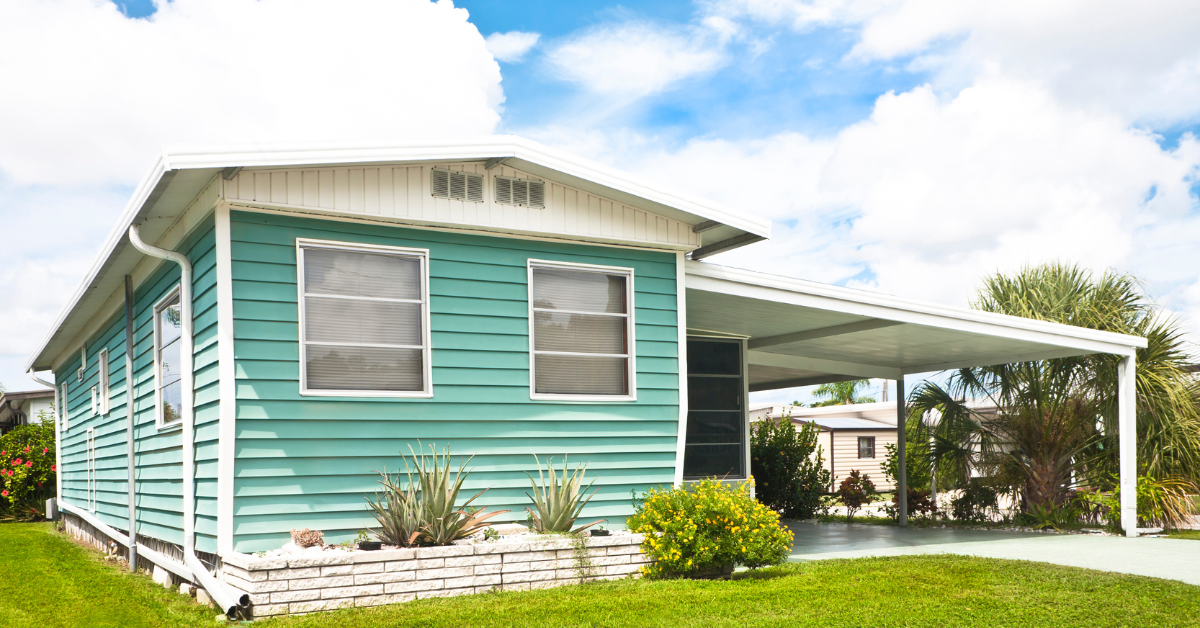Did you know you can use a loan to finance your mobile home adventure? Yep, that’s right! Uncle Sam has got your back on this one, too. In this friendly little corner of the internet, we’re going to dive into the world of VA home loans for mobile homes. So grab your favorite drink, put your feet up, and let’s get ready to hit the road together! Because, honestly, who doesn’t love a super helpful, user-friendly guide to making dreams come true? So, let’s get moving!
What Are VA Loans?
VA loans are a unique kind of mortgage backed by the U.S. Department of Veterans Affairs. They were designed to help military service members and their families to buy homes without needing a down payment or stellar credit. The VA is not the one lending you the money; rather, they’re offering a sort of guarantee to the loan provider.
Benefits of Using a VA Home Loan
VA mortgage loans come with a boatload of benefits. Some of the key benefits include:
- No down payment required
- Lower interest rates
- No private mortgage insurance (PMI) requirement
- More lenient credit requirements
These features make VA mortgages an attractive financing option for many veterans and their families. In short, they can be a real game-changer if you’re eligible.
Eligibility for a VA Home Loan

Who Can Apply for a Loan?
So who can take a swing at this kind of loan? It’s not just anyone. You need to be a veteran, active duty service member, or a member of certain military-affiliated organizations. The spouse of a service member who died in the line of duty or as a result of a service-related disability may also be eligible.
Document Requirements for Eligibility
Getting a loan is like taking a trip to the DMV, you need the right paperwork. You’ll need a Certificate of Eligibility (COE) to prove you’re eligible for a loan, and that requires submitting the right documentation to the VA.
Meeting Certain Loan Requirements
Credit and Income Requirements
Based on years of involvement in assisting clients with VA loans for mobile homes, even with VA financing, you still need to show lenders you’re not a high-risk borrower. That means meeting certain credit and income requirements. Though the VA doesn’t set a minimum credit score, most loan providers look for a score of 600 or higher. They’ll also want to see stable income and a reasonable amount of debt.
Property Eligibility Requirements
Just like any loan, the VA has rules about the kind of property you can buy. For instance, it has to be your primary residence. But we’re here to talk about mobile homes, so let’s dive into that.
Understanding the Difference Between Mobile and Manufactured Home

Definitions: Mobile Home vs. Manufactured Home
Here’s where things get a little tricky, folks. “Mobile home” and “manufactured home” are often used interchangeably, but they’re not quite the same. In general, “mobile home” refers to homes built before 1976, while “manufactured home” refers to those built after 1976 when federal building codes were established.
Understanding the Importance of Build Date (Pre-1976 vs. Post-1976)
Why does the build date matter? Well, because of those building codes. Homes built after 1976 generally meet higher safety and quality standards. The VA is more likely to approve a loan for a manufactured home than a pre-1976 mobile home.
Using a VA Loan to Buy a Manufactured Home
Apply for a Loan for a Manufactured Home
Applying for a loan for a manufactured home isn’t too different from applying for a regular loan, you’ll need your COE, income verification, and a decent credit score.
Understanding the Loan Process for Manufactured Homes
It’s important to understand that not all lenders will loan for manufactured homes, even with a VA guarantee. However, those that do will follow a similar process to a standard loan.
The Importance of a Permanent Foundation for a Manufactured Home

Why Does the VA Require a Permanent Foundation?
The VA requires a permanent foundation for a reason: stability. They want to ensure the home is permanently affixed to the land, which typically increases its value and longevity.
How to Certify a Permanent Foundation
Certifying a permanent foundation involves hiring a professional engineer to inspect and certify that the home meets the HUD’s foundation requirements. It’s an extra hoop to jump through, but it’s essential for a loan.
Loan Terms and Mortgage Details for Veteran Affairs Loans
Understanding Terms and Interest Rates
The VA doesn’t set interest rates, but because of its guarantee, lenders often offer competitive rates. Terms can range from 15 to 30 years, but they can be shorter for a manufactured home.
Exploring VA Mortgage Options for Manufactured Homes
While these loans can finance the home and the land, some lenders also offer loans just for the manufactured home. These typically have shorter terms and higher interest rates.
Lenders Offering VA Loans for Manufactured Homes

What to Look for in a Lender
Choosing the right lender is like picking the right tool for a job. Look for a lender who’s also familiar with this type of loan, is willing to finance manufactured homes, and offers good interest rates and terms.
Here’s a table that will highlight the key aspects to consider when choosing a lender for a loan:
| Factors to Consider | Description |
|---|---|
| Experience | Choose a lender who has thorough experience and understanding of the loan process. |
| Good Communication | A reliable lender will be ready to answer your questions, respond to emails, and guide you through the process. |
| Transparency | Your lender should present all the costs and rates upfront, with no hidden charges or surprises. |
| Customer Reviews | Check what previous clients have said about the lender to gauge their credibility and customer service. |
| Competitive Rates | Shop around to ensure you’re getting a good deal. A lower interest rate can save you a significant amount over the life of the loan. |
| Patience and Understanding | Given the complexity of the loan process, you want a lender who will patiently explain things and support you throughout the process. |
Remember, you’re not just looking for a lender, you’re looking for a partner. Choose wisely!
A Step-by-Step Guide on Buying a Mobile Home with a VA Loan
Applying for a loan for a mobile home can feel like an overwhelming process. But don’t sweat it; with the right direction and some discipline, it’s an entirely manageable process. So, let’s walk through the necessary steps together:
Step 1: Obtain Your Certificate of Eligibility (COE)
The first step in your journey is obtaining your Certificate of Eligibility (COE). Your COE is proof to lenders that you meet the basic service requirements for a loan. You can apply for your COE through the eBenefits portal on the VA website or by mailing in an application. Be prepared to provide information about your service history and, in some cases, details about your discharge.
Step 2: Find a Loan Lender
With your COE in hand, the next step is finding a lender. Remember, not every lender handles VA financing for manufactured homes, so this might require some legwork. Do your research, check the lender’s reputation, and ask about their experience with loans for manufactured homes. Your lender should be your ally in this journey, so pick wisely!
Step 3: Get Preapproved
Now it’s time to get preapproved. During this process, the lender will check your credit and financial history to determine how much loan you can afford. This step can give you a better idea of your budget and show sellers that you’re serious about buying.
Step 4: Make an Offer on a VA Manufactured Home
Once preapproved, it’s time to go house hunting! Work with a real estate agent experienced with manufactured homes and loans to find the right home for you. Once you find it, make an offer!
Step 5: Home Inspection and Appraisal
If the seller accepts your offer, the next steps are the home inspection and appraisal. The inspection ensures there aren’t any major issues with the home, while the appraisal confirms the home’s value for the lender. These are critical steps because the VA will not guarantee a loan for a home with major problems or for more than the home’s worth.
Step 6: Process the Loan
Once the home passes inspection and appraisal, the lender will process your loan. They’ll verify your income, assets, and debt, and ensure the home meets all VA property eligibility requirements. This process may take a few weeks, so patience is key here, folks!
Step 7: Close the Loan
Finally, it’s time to close the loan. You’ll review and sign a lot of documents, but at the end of it, you’ll be the proud owner of a new manufactured home!
And there you have it, the step-by-step process to apply for a VA loan for a mobile home. While it might seem daunting, taking it one step at a time makes it much more manageable. Remember, you’ve got this!
Navigating the Home Inspection and Appraisal Process
Alright, let’s talk about the home inspection and appraisal process. This is part of the loan process where you get to see if your future home is more than just a pretty face. It’s a crucial step that can prevent you from buying a lemon, and it’s all about protecting you and your investment.
The Home Inspection
Let’s start with the home inspection. Think of it like taking a used car to a mechanic before you buy. You’re looking under the hood to make sure everything’s in good shape. The home inspector is your mechanic in this scenario.
The inspector is going to check the home from top to bottom. We’re talking about the roof, foundation, plumbing, electrical systems, heating and cooling, appliances – the works. Having successfully managed a wide range of VA loan projects encompassing mobile homes, they’re looking for any significant problems that could cost you big bucks down the line.
Bear in mind, a home inspector is not just looking for cosmetic issues. They’re searching for the things that might make you say, “Had I known that I never would have bought this place!” And remember, the cost of a home inspection is peanuts compared to the cost of unexpected home repairs.
The Appraisal: What’s It Really Worth?
Next up is the appraisal. This is where a professional appraiser determines the market value of the home. Unlike the inspector, the appraiser isn’t looking for problems. They’re figuring out what the home is worth based on factors like its size, condition, location, and comparable homes in the area.
Why is this important? Well, it’s simple. Your VA lender is about to hand over a lot of dough, and they want to make sure the property is worth the amount they’re loaning. And it’s also for your benefit, you don’t want to overpay for your home.
If the appraisal comes in lower than the sale price, it’s back to the negotiation table. You’ll have to either renegotiate the price with the seller, make up the difference yourself, or walk away.
What a Mobile Home Must Meet for a VA Loan
Loan Requirements for Mobile Homes
If you’re eyeing a loan program for a mobile home, there are a handful of must-know va requirements.
- Permanent Foundation: Your mobile home can’t be on wheels. The VA says it must be firmly attached to a permanent foundation. So, if you had visions of your house being a traveling companion, it’s time for a rethink.
- Real Estate Status: The law has to see your mobile home as real estate, not personal property or a vehicle. Make sure your state law aligns with this.
- Size Requirements: Single-wide mobile homes need to be at least 400 square feet. For double-wide or larger, the VA is looking for at least 700 square feet of living space. Enough room to swing a cat, as they say.
- Loan Terms: Maximum loan term of 20 years and 32 days, for both single-wide and double-wide homes. Yes, that’s right – 32 days, not a day more!
- Down Payment: Expect to cough up a 5% down payment for a manufactured home. This ain’t like the 0% down we see for site-built homes.
- Tightened Financial Standards: Brace yourself for stricter credit and debt-to-income ratio standards when you’re hunting for a mobile home. Get your financial ducks in a row.
That’s it, plain and simple. These are the requirements you need to have on your radar when you’re purchasing a mobile or manufactured home.
Solutions for Common Obstacles in VA Mobile Home Financing
Meeting these requirements may involve:
- Certifying the Foundation: Hire a professional. A certified structural engineer can confirm your mobile home’s foundation meets federal guidelines. It’s an extra cost, but a necessary one.
- Building Codes Compliance: Get a home inspection. A professional can check for code compliance and identify any issues. If problems arise, negotiate with the seller to get them fixed.
- Property Classification: Work with local authorities. Your local county recorder’s office or housing department can guide you on classifying your home as real estate. Consider getting legal advice for a smooth process.
Is Navigating the VA Loan Process for Your Mobile Home Purchase Worth It?

In the end, getting a loan for a mobile home might take a little extra work, but it’s well worth it for the benefits these loans offer. With the right approach and a bit of persistence, you can navigate this loan process and make your dream of homeownership a reality. It’s your hard-earned benefit, make the most out of it!
Frequently Asked Questions
Can you use a VA home loan on any house?
Absolutely, you can utilize VA financing to buy almost any type of home, from those snazzy modular homes to swanky condos. But here’s the kicker, the home you’re buying needs to be your main hangout – in other words, you and your family have to live there after you buy it.
Can you use VA house loan for an RV?
You can’t use a loan to buy an RV or any other kind of fun-on-wheels. Veteran Affairs loans are strictly for homes you plan to live in, not for your weekend adventures or cross-country road trips.
How much does the VA approve for a manufactured home loan?
When it comes to how much you can borrow with a VA loan benefit, the VA doesn’t set a cap. But here’s the twist, the VA will only back up to 25% of the loan amount and only to the conforming loan limit set by the Federal Housing Finance Agency (FHFA) in your area. This could affect how much a financer is willing to dish out.
Can you have a VA mortgage loan on a home you already own?
No, you can’t use VA financing on a home you already own. These loans are meant to help you buy a new home or refinance an existing Veteran Affairs loan. They’re not for homes you’ve already got in your real estate portfolio.






